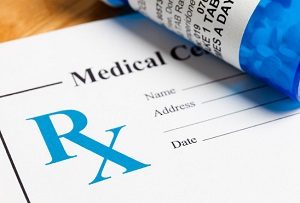The latest innovations in technology have helped ensure our elderly loved ones can be safer in a nursing home facility today than what was the case a decade ago. But are all the nursing homes taking advantage of today’s technology? To distinguish a good nursing home facility from bad one, there are many things you can review before selecting a place.
Background Checks
The emergence of electronic records that can be shared between law enforcement across various states have made background checks more reliable and easier to complete. But it’s the hiring practices of the nursing home that can reveal whether it does background checks in a thorough manner, or if at all.
Safety Alert Systems
While only 5% of the elderly population lives in nursing homes, 20% of elderly falls and accidents occur in them. Almost 2,000 nursing home residents die each year from these falls, and many suffer from other injuries. Good quality nursing homes have extensive training and safety systems in place to minimize the risk of injury among their residents. This includes alerting systems that can buzz and communicate to the nursing home staff when a fall-risk resident gets up unassisted. Top quality nursing homes have these systems so that the onus is not simply on the elderly resident to press a call button to get assistance. Always ask a nursing facility to demonstrate their safety alert system.
Caring For Residents Suffering From Alzheimer’s Disease
Good nursing homes invest in training staff to properly care for residents suffering from Alzheimer’s disease. Caregivers who have extensive training in how to cope with behavior linked to Alzheimer’s are less likely to verbally abuse a resident. These caregivers often understand how to best handle situations that may arise, and are more likely to respond appropriately.
Administering Medicine
Often times, one caregiver is responsible for administering medicine to many residents, and there is a risk that pills can get mixed. These dangers increase if caregivers are overwhelmed, or working in a nursing home that doesn’t hire adequate staff. Good quality facilities will have a highly organized method for administering medications.

Such nursing homes will put daily medication doses in sealed packets and cross-reference them to a medication list before administering them to residents. Don’t be afraid to ask a facility about its procedures for administering medications before placing your loved one there.
Infection Prevention & Control
Infections can have deadly results, especially for our elderly loved ones. Be sure that your loved one’s nursing home facility takes the threat of infections seriously. Are patients kept separately when they are contagious? Does the nursing home offer infection prevention & control training to its staff? Do you see such training enforced? For example, do you see the staff washing hands regularly, wearing gloves, and using clean medical devices?
Renovations & Floor Plans to Prevent Falls
Good nursing homes often get renovations when they are needed and the layout of such nursing homes is designed to make it easier for the elderly to navigate. This includes slip-resistant flooring, light beams that guide along hallways and exits, unobstructed walkways, supportive furniture, (such as chairs with padding support and armrests), low-pile carpet that’s properly secured to the floor as opposed to loose rugs, shag or high-pile carpets, which are all considered a fall risk for the elderly.
While we hope these tips help you select the right facility for your elderly loved one, it’s not uncommon to see some nursing homes go back on their promises after admitting your loved one. If you notice that the care of your mom or dad is not what was promised, you may need a dedicated and experienced nursing home neglect or abuse lawyer. Our nursing home abuse and neglect lawyers in Chicago have over 50 years of combined experience with verdicts and settlements reaching millions of dollars. Contact the Dinizulu Law Group, Ltd. to fight for you and your loved one. We offer free initial consultations and can be reached by email or phone at 1 (312) 384-1920 or 1 (800) 693-1LAW.



